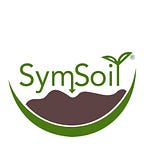Your Local Carbon Network (LCN)
A Local Carbon Network is a local (county, city, etc.) group organized to conserve and exchange valuable carbon resources within a local carbon shed. The group uses food scraps and locally derived woody material as base material (compost feedstock) and uses the finished compost within the locality, in individual yards or community gardens.
Local carbon networks (LCNs) have operated in California since 2018, and are now going national.
We view each area, a carbon shed, as a source for carbon, much like a hydrologist looks at water shed: a local area within which the resource is effectively and efficiently collected, transported and exchanged in an economically and ecologically sound system. This topic has a new tag, Local Carbon Network.
Members produce their own compost, from their own material, augmented by biochar and soil microbe infusion, all produced and managed within their carbon shed: a Local Carbon Network. The first LCN was started in Berkeley in 2018.
LCN members subscribe to monthly supplies of Sky Carbon Biochar and SymSoil Biology Finisher, which reseeds the complete soil microbe biome, which they add to their compostable materials. This Robust Compost with SkyCarbon is more powerful in a garden than regular, commodity compost.
A fully developed LCN member site will use the insulated Jora composter, which is endorsed by both SymSoil and All Power Labs. This system offers the home or community composter the best results for thermophyllic composting on a manageable scale.
Membership in a Local Carbon Network represents a personal commitment to climate action, with the tools to sequester one ton of carbon per year, using food scraps and your plants.
The key to compositing as an LCN is complete composting, with enough heat from bacterial decomposition, combined with a biological finisher that restores fungi and the rest of the healthy soil microbe biome. This is described in How to Turn Food Scraps into Great Compost.
Soil biodiversity is necessary to sequester carbon in the soil. This creates a product that increases the flavor and nutrient density of produce from your victory garden or the health and vitality of your houseplants or flower garden.
With each subscription to a Local Carbon Network, comes the three key ingredients to convert kitchen waste into material that will sequester carbon through soil. These ingredients are:
- Sky Carbon (Biochar)
- SymSoil Biology Finisher (Fungi-Plus)
- Woody Material
While these can be used with any composter, LCN strongly recommends an insulated composters, which help the material achieve sufficient heat to compete the decomposition process.
Early Adopter LCN Membership comes with Free Shipping. The membership includes shipping of these materials to your home. Participation as an Early Adopter does not require any established organization in your carbon shed.
You can go it alone. The good news is that you do not have to be the only one for long. SymSoil will market in your community and offer guidance in establishing a full-fledged, self sufficient LCN in your carbon shed, and the opportunity to you, your group or your community to lead that effort.
The second piece of good news, is that the compost made this way can have a dramatic impact on your garden and the flavor of your produce.
If you are fortunate to have an established LCN near you, Regional LCN Memberships (listed at the bottom of the LCN page) have local pickup locations. HALF the cost of the membership is shipping, so when a new the network has enough members, local pickup will become available.
This article was written by Peter Hirst, who developed the concept of the Carbon Shed. Working with the Sonoma Ecology Center’s Biochar Initiative, Peter developed the Conservation Burn.
A Conservation Burn is done under the same permits and terms as a traditional agricultural burn, but technique reduces ash and particulate in the air by 95% and CO2 emission by 50%. Click here for video. SymSoil offers training in Conservation Burns.
Peter is a contributing author to Biochar Revolution, and the founder of New England Biochar. Currently, he is advocating on behalf of farmers as new regulations related to on-farm composting are evolving on California. His most recent article, Finally, Regulators Respond to Farmers Needs for On-Farm Composting can be found on the SymSoil website.
